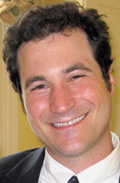If I get a tooth ache – What should I do and not do?
A tooth ache can be caused by a number of issues; therefore it is hard to advise someone what to do for their situation without knowing the cause of the ache or pain. The most common tooth ache causes I see and diagnose are pulpal (tooth nerve) irritation secondary to deep decay, pulpal irritation secondary to either hyper occlusion (a tooth being too high) or clenching/grinding, and lastly bone and periodontal infection due to bacteria traveling though the pulp at the center of the tooth into the supporting structures below.

The most typical presentation for a tooth ache caused by pulpal (tooth nerve) irritation secondary to deep decay is a tooth that is sensitive in a sharp, stabbing, sometimes electrical manner to cold and sweets for a few seconds. In the further stages of this condition the decay may be so close to the nerve of the tooth that it causes the patient to be unable to sleep at night. It will also begin hurting with no stimulus and the pain lingers. In this case there is not much one can do other than see a qualified dental specialist for a radiograph, examination, and testing to confirm the tooth in question and locate/remove the decay. It is very important to have this kind of situation corrected as quickly as possible because it doesn’t take long for the decay and the pain it causes to get much worse. If caught early enough a simple filling may be all that is required to correct the issue; however, if left untreated for too long the tooth will need either a root canal or to be extracted.
The most typical presentation for a tooth ache caused by pulpal irritation secondary to either hyper occlusion (a tooth being too high) or clenching/grinding is a more general aching that can be hard to pinpoint to one tooth or even one arch (upper or lower) that hurts upon biting. It can be a dull ache which sometimes throbs or more of a sharp pain. Often this issue is very hard to differentiate from the other causes I have mentioned. In many cases ruling out the other causes (a process of elimination) is the best way to narrow it down to this diagnosis. This condition can only be confirmed by getting the patient in a night guard, getting the patient to stop clenching, or reducing the tooth that is too high in occlusion and waiting to see if the tooth pain resolves. If you think you may have this condition it is best to have an evaluation by your dentist to make sure this is the cause of your pain and provide you with treatment and/or advice to correct the issue.

The most typical presentation for a tooth ache caused by bone and periodontal infection due to bacteria traveling through the pulp is a very intense throbbing and a dull ache. Often the patient will know that his/her tooth has an issue far before this pain occurs and sometimes the tooth in question is very badly broken down. In some cases the tooth had a very sharp pain for a while that went away and was followed shortly by the dull ache. This is because the bacteria entered the nerve of the tooth and killed it either partially or completely and hence the lack of symptoms for a time. If you are having this type of pain it is extremely important to see a dentist for diagnosis and treatment as soon possible to avoid serious complications that may occur including, but not limited to, the infection of other teeth from below, fever, chills, full-blown systemic infection, and in some extreme cases, death.
It requires many years of study of dentistry and copious experience in a clinical setting to accurately diagnose a toothache. This article is not meant to be substitute for an evaluation by an expert dentist. With any type of tooth pain it is crucial to be seen and treated by a professional and the negligence of doing so could result in disastrous consequences for your teeth, your overall health and your bank account.
Back to Dental Library Page
Mouth Carolina Dentistry, PA - Dr. Andrew Greenberg
Dr. Andrew Greenberg completed his Bachelor’s Degree in New Orleans, Louisiana at Tulane University. He graduated from the Medical University of South Carolina College of Dental Medicine in 2009, where he portrayed excellent academic performance. He exercises his academic brilliance to the benefit of his patients every day. He grew up in a family with a dental background and showed interest in the field since his early days.










